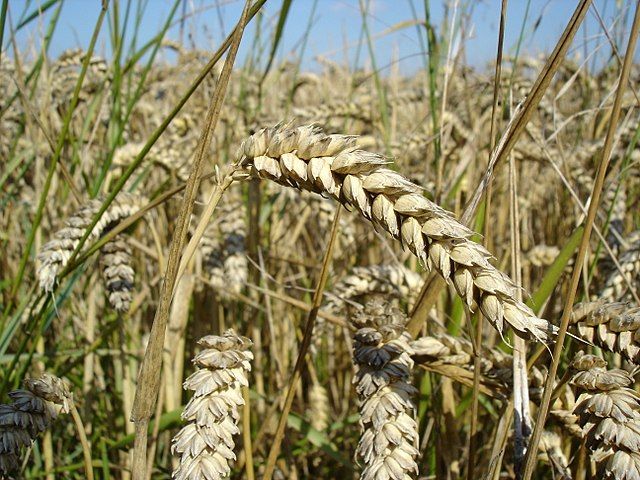The Climate Impact Lab studies the less-known costs of climate change. Like suicide.
By Emily Holden | October 10, 2018
 In one study on India, the Climate Impact Lab found that when heat damages crops during the growing season there are more suicides.
In one study on India, the Climate Impact Lab found that when heat damages crops during the growing season there are more suicides.
One of the biggest hubs of real-time climate research is a lab hundreds of miles from the rising seas and melting ice caps. There are no test tubes or beakers. Instead young scientists and economists hunch over computers analyzing the newest data.
A group of them are currently reviewing a study that considers whether crime levels are connected to monsoon seasons. The findings are a tiny part of a big question: how much is climate change costing society, and who’s paying?
“Each time we use energy from fossil fuels, we are causing some kind of cost on someone who’s not involved,” said Amir Jina, a professor at the University of Chicago and member of the Climate Impact Lab. “By causing that damage we’re essentially taking money away from them because of some interaction, whether it’s driving our cars or turning on our light switches.”
The world is far off track to limit catastrophic climate change and needs to undertake unprecedented changes within the next 12 years to avoid the worst of warming, according to international scientists. Barring a radical transformation in how people live, temperatures will continue to rise and climate costs will grow. The Climate Impact Lab wants to know how much they will increase and how dangerous the planet will become.
“There’s been a change in urgency in how we discuss things,” said Jina, who was an early student of this project to meld climate science and economics. “People are starting to shift to think of it as not just what happens to the natural world and here’s what happens with this problem, but what the implications are for people.”
From the effects of heat on worker productivity to suicide surges following crop losses, the lab is tallying the damages that don’t make the evening news. In addition to the University of Chicago, it also operates out of the University of California at Berkeley, the economic research firm Rhodium Group, and Rutgers University.
“A lot of academia is writing a paper and hoping someone notices and putting it on a shelf next to another paper, and those papers can be really valuable, but we’re trying to step back and say, ‘together, what do all of these things mean for policy?’” said Tamma Carleton, a postdoctoral scholar working with the lab.
Carleton studies deaths and crime related to climate change, as well as internal and international migration.
In one study from India, she found that when heat damages crops during the growing season, there are more suicides. When it’s hotter than 20 degrees Celsius, each degree increase in a single day means about 70 people kill themselves. Carleton estimated warming has been responsible for 59,300 suicides in India over 30 years.
Another study co-authored by a Climate Impact Lab member found that higher temperatures increase suicide rates in the United States and Mexico too.
“Any death is important, but when it’s suicide I think it’s a really important indicator of human hardship,” Carleton said.
Anant Sudarshan, the South Asia director of the University of Chicago’s Energy Policy Institute, has other startling findings about what extreme heat means for India.
His research found that on hot days, productivity at manufacturing plants declines 4 percent to 9 percent for every degree increase in temperature. When it is very hot for several days, people stop going to work. Warming between 1971 and 2009 may have decreased output in India by 3 percent.
Companies in India are using the data to determine whether to buy expensive air conditioners, hire more people, shift to automation or just take the hit, Sudarshan said.
Sudarshan said the observations aren’t just relevant to India.
“We’re trying to say you should be concerned even if you’re not in a developing country,” Sudarshan said. “It’s not so clear we won’t see that in many places.”
In the United States, officials rolling back climate rules have stopped counting the global benefits of efforts to curb climate change. In one case, they argued that each ton of carbon pollution costs society as little as $1, far less than what most experts think is accurate.
The Climate Impact Lab will use a supercomputer to look at daily climate data for 25,000 regions, to come up with an updated number and to tell people what climate change will mean on the local level.
Michael Greenstone, the codirector of the lab, who helped calculate the social cost of carbon pollution under the Obama administration, said he was frustrated that science could only tell people how much temperatures would rise on average or what that would mean for the global economy.
“That doesn’t tell anybody in Louisiana what’s going to happen to their life. They’re not the global average. It’s not interesting to them,” Greenstone said.
The University of Chicago covered this reporter’s travel expenses to moderate an event on campus but had no input on this reporting.
Together, we make the world safer.
The Bulletin elevates expert voices above the noise. But as an independent nonprofit organization, our operations depend on the support of readers like you. Help us continue to deliver quality journalism that holds leaders accountable. Your support of our work at any level is important. In return, we promise our coverage will be understandable, influential, vigilant, solution-oriented, and fair-minded. Together we can make a difference.
Topics: Analysis, Climate Change














